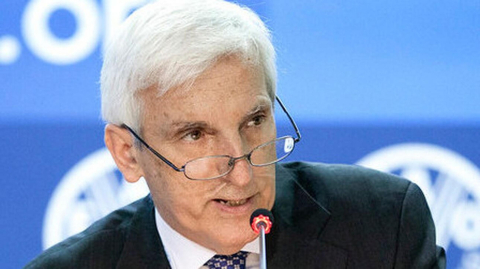3298 publications
Russia's Academy of Sciences' Reform: Causes and Consequences for Russian Science
This paper analyzes the origins and causes of the radical reforms undertaken in Russia’s academic sciences sector, which resulted in the fusion of three state academies in 2013.
The European Energy Policy: Building New Perspectives
“After 17 years of supranationality, we are still seeking how to define a common energy policy and what it might be. [...] Could we have done more in one generation? Or were goals only established to achieve a political balance which it was explicitly agreed to ignore, once the machinery began to operate? Historians will have a hard task to distinguish between excessive ambitions and national hypocrisies”.
La réforme du secteur de sécurité, entre bureaucraties et stratégie
The concept of Security Sector Reform (SSR) was developed during the 1990s as a response to several problems chiefly faced by countries in post-conflict transitions: weak new governments; conflicting civil-military relations; ill-defined division of tasks between the armed forces, the police, and the judiciary system; and tension between the requirements to stabilize the country and to establish the rule of law.
Russia: Youth and Politics
Young people are the most politically active and impulsive part of any society.
Brazil and International Migrations in the Twenty-first Century: Flows and Policies
The second half of the XXth century is a unique stage in the history of Brazilian migrations: the attractiveness of Brazil as a country of immigration declines, due to economic hardships and a shift in public perceptions of migrants, who are increasingly framed as a security liability.









